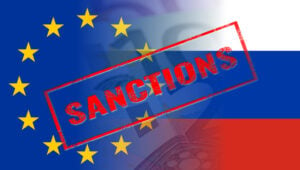Study shows employed Ukrainian refugees boost Polish economy, driving GDP growth over two years of war

pHoto: unsplash.com
Over the past two years of war, the impact of Ukrainian refugees on Poland's economy has become more noticeable.
Thanks to employed Ukrainians, Poland's GDP is increasing, Rubryka reports, citing reliefweb.int.
In collaboration with UNHCR, Deloitte analyzed the impact of Ukrainian refugees on Poland's economy. As of October 2023, almost 1 million Ukrainian refugees (957,000 people) lived in Poland. This population consists mostly of women (41%) and children (40%).
Nearly half of all refugee households had a member with a chronic illness, while almost 10% had a disabled person. Over a third of refugee households in Poland had only one parent present, and more than 20% had an elderly person. Every tenth refugee household consisted solely of pensioners.
Despite the challenges, Ukrainian refugees quickly integrated into the labor market. In November 2022, the employment rate reached 65%, and by July-August 2023, most Ukrainian refugee households were self-sustaining, with 80% of their income coming from work.
In July-August 2023, 56% of refugees declared having a higher education, and their employment rate was nearly a third higher than other groups.
However, Ukrainian refugees have not fully mastered the Polish language for the job market. In November, 21% of respondents did not speak Polish. In June 2023, 40% of officially employed refugees worked in unskilled jobs, and for half of them, language barriers limited access to services, while 34% had limited access to the labor market.
Currently, 225,000 to 350,000 Ukrainian refugees are employed in Poland. High education levels and many vacancies in Poland facilitate their integration. Entrepreneurs among refugees registered 5% of their own businesses or work as freelancers.
According to the survey, in 2023, refugees were most employed in manufacturing (14%), accommodation and food services (12%), and trade and repair (6%).
In 2023, 20% of Ukrainian refugees earned less than zł3,000 ( €697), 41% earned between zł 3,000 and zł 6,000 (€1,395), and 12% earned more than zł 6,000.
The standard of living for Ukrainian refugees may be significantly lower than that of locals, even with the same income, due to the lack of housing.
Ukrainian refugees' taxes compensated for assistance provided. According to the study, refugees who remain in Poland as workers, entrepreneurs, consumers, and taxpayers positively impact the economic outcome, which will increase in the long term.
Overall, state revenues (GDP) increased by 0.8-1.1% in 2022 and by 1.05-1.45% in 2023. In monetary terms, this amounted to zł 10.1-13.7 billion in 2022 and zł 14.7-19.9 billion in 2023.
If estimates of state expenditures on refugees of zł 15 billion in 2022 and zł 5 billion in 2023 are accurate, it can be concluded that they were more than compensated for by additional tax revenues. In the long term, refugees are expected to increase annual state income by about 0.85-1.3%.
As for the situation of Ukrainian refugees abroad, on February 28, Lithuania decided to allocate an additional €326,000 to support Ukrainian refugees, which will be distributed through the Ministry of Social Security, Labor, and Health to Ukrainians living in the country.
In addition, the Ministry of Education, Science, and Sport of Lithuania proposed extending the period for another year, during which Ukrainian refugees who have found work in the country do not need to speak Lithuanian.
Luxembourg has extended temporary protection for Ukrainian refugees until March 4, 2025, allowing displaced persons to use this status for another year.
The Norwegian government decided to once again limit financial assistance to Ukrainian displaced persons to avoid excessive pressure on municipalities and to maintain a high level of service and benefits.
In several European countries, Ukrainians will be paid up to €5,300 for early return home.
The International Organization for Migration (IOM) has supported 6.5 million people in Ukraine and 11 neighboring countries over the past two years since the escalation of the war in Ukraine, providing critically important and life-saving assistance to those who need it most.
As of the end of October 2023, 4.24 million Ukrainian refugees received temporary shelter in the European Union. Almost half of Ukrainian refugees are women (46.4%), a third are children, and one-fifth are adult men.





















































